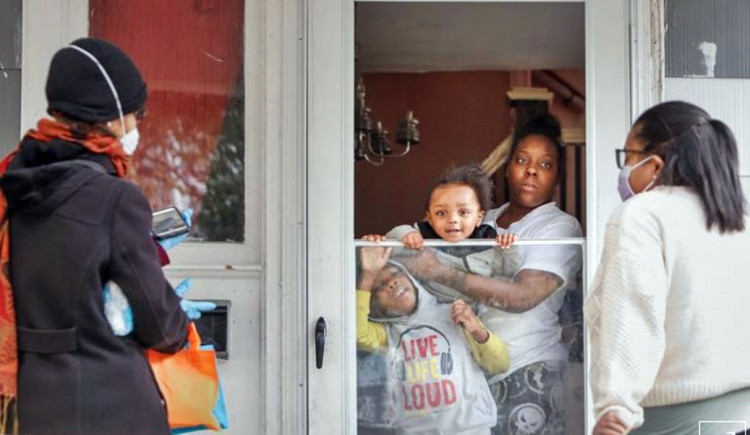Blacks and Hispanics in the U.S. are the hardest hit by an astonishing plunge in lifespans during the ffirst half of 2020 as the first wave of deaths triggered by the COVID-19 pandemic were recorded.
Blacks lost nearly three years and Hispanics, nearly two years, in their life expectancy, according to a preliminary report issued Thursday by the U.S. Centers for Disease Control and Prevention (CDC). Life expectancy is a statistical measure of the average time a person is expected to live, based on the year of birth, current age and other demographic factors.
The CDC report reveals life expectancy in the U.S. plunged by one year overall during the first half of 2020.
From 2019 until the first half of 2020, life expectancy dropped 2.7 years among Blacks, to 72 years of age. It shrank 1.9 years for Hispanics, to 79.9, and only 0.8 years for white people, to 78. The CDC report did not analyze Asians and Native Americans.
In the first half of 2020, life expectancy was 77.8 years for Americans overall, down one year from 78.8 in 2019. Males in 2020 could expect to live 75.1 years on average and females, 80.5 years.
"This is a huge decline," said Dr Robert Anderson, chief of Mortality Statistics at the CDC's National Center for Health Statistics. "You have to go back to World War II, the 1940s, to find a decline like this."
Blacks now lag white people by six years in life expectancy, reversing a trend that saw their life expectancies coming closer since 1993.
"Black and Hispanic communities throughout the United States have borne the brunt of this pandemic," said Dr. Kirsten Bibbins-Domingo, a health equity researcher and dean at the University of California, San Francisco.
"They're more likely to be in frontline, low-wage jobs and living in crowded environments where it's easier for the virus to spread," she pointed out.
There's also the "stark, pre-existing health disparities in other conditions" that raise their risk of dying from COVID-19, she said.
"What is really quite striking in these numbers is that they only reflect the first half of the year ... I would expect that these numbers would only get worse," according to Bibbins-Domingo.
She said the priority now in vaccinations should be to distribute vaccines more equitably, to improve working conditions and better protect minorities from infection, and to include them in economic relief measures.
Dr. Otis Brawley, a globally recognized expert in cancer prevention and control and a public health professor at Johns Hopkins University, agreed.
"The focus really needs to be broad spread of getting every American adequate care. And health care needs to be defined as prevention as well as treatment," said Brawley, who is Black.
He said the drop in life expectancy is more evidence of "our mishandling of the pandemic."
"We have been devastated by the coronavirus more so than any other country. We are 4% of the world's population, more than 20% of the world's coronavirus deaths.





